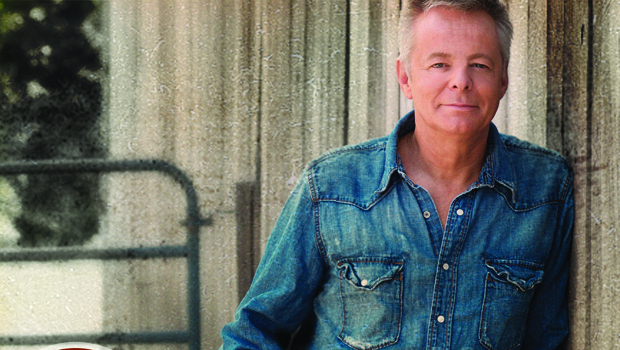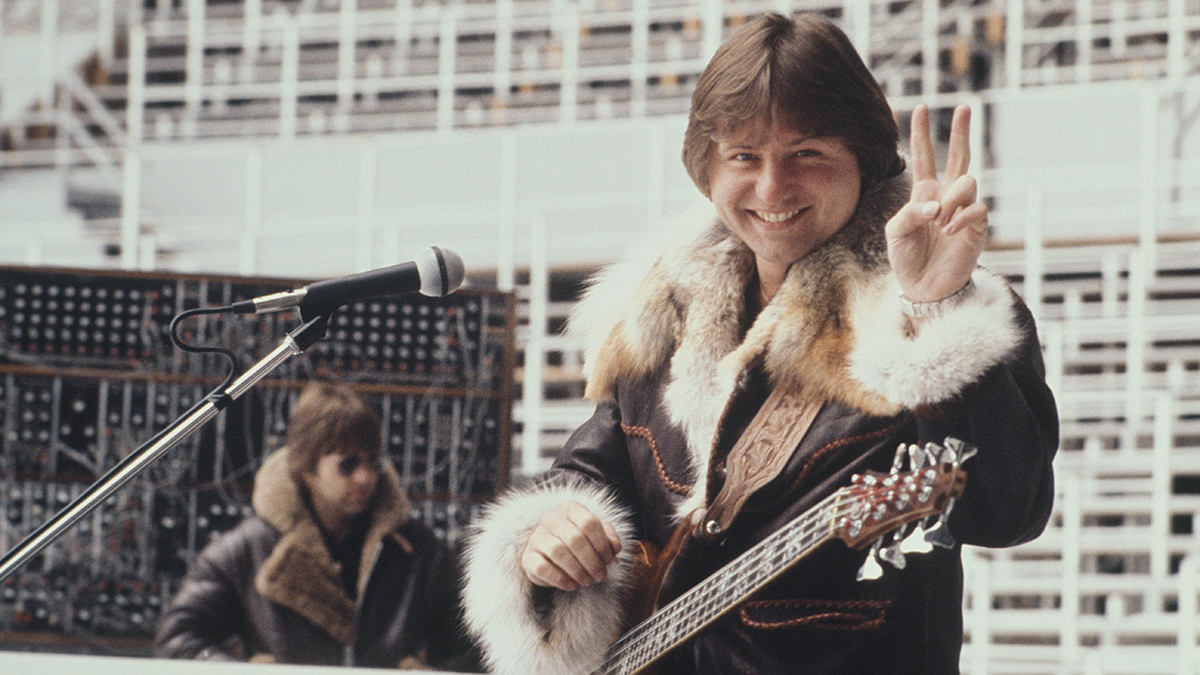Interview: Tommy Emmanuel Discusses Influences and His New Album, 'Little By Little'

After flying under the mainstream radar for years, Australian guitarist Tommy Emmanuel is enjoying the recognition his millions of YouTube views are bringing him.
His strategy for success is simple: Tour relentlessly -- and be so damn good that people can’t ignore you.
And it's working.
We recently caught up with Emmanuel when he was in Europe on his seemingly never-ending tour. We talked about his latest album, Little By Little, and his many influences -- and he even answered questions from readers.
GUITAR WORLD: You've slowly gone from a being relative unknown to one of the most respected guitarists in the world. To what do you attribute your success?
I think there are many people ahead of the line in front of me as far as respect, notoriety and success goes. However, I'm very grateful and very happy with where I am in my life and career. The thing I love about traveling and playing concerts is the life experiences I have every day. People are inspiring to me and they really energize me and remind me that my mission in life is to play for the people and not get sidetracked by worries or pressures. I don't have a formula for success, but the formula for failure is trying to please everybody.
What advice do you offer people who approach you after your clinics and concerts looking for help with their playing and music careers?
All the latest guitar news, interviews, lessons, reviews, deals and more, direct to your inbox!
The most commonly asked question is, "How does my son or daughter get started doing what you're doing?" I think it's so important to have good music to play. You don't want to waste time and energy on songs that don't mean anything. You need to find songs that are strong in every way. Good melody, good structure, good feeling and memorable.
What is the most difficult of your songs to play?
There are a few songs I wrote in the '70s that I still struggle with, playing-wise. They are technically very difficult and complicated, and I can only play them if I practice them solidly for a few days.
What was the process for your latest album, Little By Little? How do you approach writing, and what mics do you use to get your acoustic tone?
The album took some time, as I kept coming back to it with new songs. That's why it ended up as a double album. There were also some good jams in the studio that I recorded, and they made it onto the album as well. Each song that I compose is an individual. I don't approach each song the same way. On this album, we used Neuman KLM-184 mics and a Rode Australian-made mic as well. We also recorded direct from the pickup in my Maton guitar and miked my AER amp as well. When Kim Person comes to mix, she puts the reverb on the amp signal and leaves the microphones dry. That way you achieve total purity in the acoustic sound of my guitars.
Time for some questions from readers. Ethan in Newton, Massachusetts, asks, "How do not get lonely being on the road all the time and always finding the will to tour almost every night of your life?"
I think I'm getting better at it. I have a wonderful team around me and I never really feel lonely on the road. I have always been a loner, anyway. However, I'm meeting new people every day, so my life is full of interesting people and new challenges. The only time I feel like I'm struggling is if I get run down or feel uninspired. However, every night, I'm really hoping for the magic to happen and it usually does! Some nights, I take the show in a direction that shakes things up and causes me to do and say crazy things, just to make it interesting for me and the audience.
From Kaenan in Georgia: "What components do you think a guitar player needs to be successful in the music business, without having to sell out to get there?"
I think any musician who wants to have a successful life in music must have good songs and lots of heart in the music. The public want something that's real, and they want to feel it. So it must be able to connect with the audience through your music and your gift.
From Alexander Caraballo: "Who are and were your major influences? Also, your fingerings are amazing. Any advice on that?"
My influences are so many: Chet Atkins, Merle Travis, Jerry Reed, Django Reinhardt, George Benson, James Burton, Albert Lee, Roy Nicols, Eric Clapton, Elton John, Billy Joel, Mark Knopfler, drummers, piano players, musicians from all countries, races and cultures. As for my fingerings, I try to work out the best/economical way of playing songs when I arrange them. Finding the right key to play a song in is so important.
From Kelly in New York: "Did your abilities come naturally or did you really have to work at it?"
My abilities are in a constant state of improvement. What I try to do is expand my mind. Be open to new things all the time. I'm always honing my skills, hoping to play better every day.
From Daniel Johnson in Kentucky: "In the YouTube video of you playing "Guitar Boogie," it looks like you're catching barre shapes with just one finger. It often looks like you are playing an A minor with one finger, diagonally. If I'm right, how did this unconventional approach come about? Does having the rest of your hand open for this shape help?"
There is no A minor chord in "Guitar Boogie." There is an A7. If that's what you mean, then yes, I find ways of getting as much chord out with minimum amount of fingering. I need my other fingers for the improv! I'll have to look at the video to be able to give you any more help.
Iqbal in Indonesia and Debra in New York ask, "What is your practice regimen like? How do you approach practicing? Any tips to keep up your chops?"
Just play every day and sometimes record yourself and listen back. You'll hear what you need to work on.
From Thomas in Missouri: "What does it take to become a Certified Guitar Player?"
I don't know. Only Chet Atkins knows, and he's in heaven.
Viktor from Bulgaria asks, "I heard you ended up in the hospital recently. Are you OK? What are your plans for the future? Also, are there any techniques you think are of particular importance for guitarists to learn and work on?"
I am in good health, thank you. I have many recording plans for the next two years. Some collaborations, too! I think we all have to work on time, groove, tone, touch and always looking for the good songs!
From Joe in Ashland, Massachusetts: "How did you get to be so unbelievable?"
I don't know how to answer that question.From David Hinckley in Burlington, Massachusetts: "If Chet Atkins were still around, are any players he would bestow the legendary CGP (Certified Guitar Player) title upon? You were one of only three or four guys Chet ever gave that title to, and it's quite the honor to receive. Congratulations!"Thank you! I wouldn't know who Chet would call a CGP these days, but I admire Richard Smith very much. He is a great player, composer, teacher and performer.
